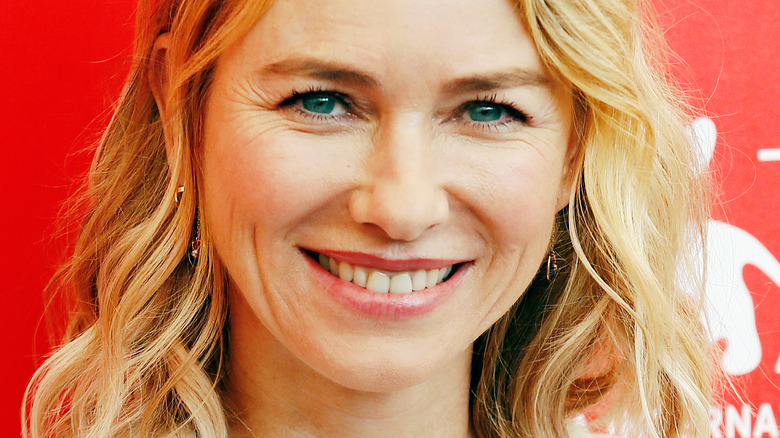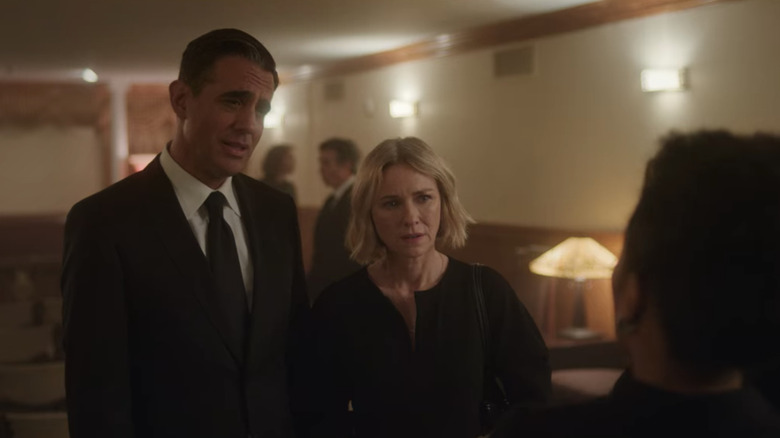Naomi Watts Describes Nora And Dean's 'Vicious Cycle' At The End Of The Watcher
Contains spoilers for "The Watcher"
The leaves have begun to change; there's a chill in the air. As summer begets fall, so too does one Ryan Murphy series cyclically replace another. On September 21, Murphy's "Dahmer – Monster: The Jeffrey Dahmer Story" hit Netflix, ushering in a wave of attention, both good and bad. Now, the fanfare for Murphy's Netflix follow-up, "The Watcher," is in full swing. Released on October 13, the thriller mystery series is inspired by the true story of Maria and Derek Broaddus, a couple who began receiving strange letters after purchasing a new home in an affluent New Jersey suburb.
"The Watcher" takes some creative liberties to make the story more TV-friendly, and Dean (Bobby Cannavale) and Nora Brannock (Naomi Watts) endure escalating stressors like break-ins and malicious phone calls that the Broadduses never experienced. Still, the ending of the series mirrors real-life events, and — spoiler alert — the identity of the Watcher is left open-ended. Here's how Naomi Watts describes the "vicious cycle" at the end of "The Watcher."
Watts says The Watcher represents a perversion of the American Dream
There's a famous quote: You either die a hero or live long enough to see yourself become the villain. Now, the Brannocks are by no means Harvey Dent, but some of Two-Face's logic can certainly be applied to the end of "The Watcher." At the conclusion of the series, Dean Brannock lingers outside his former house, bedraggled and unemployed, and watches a new family move into his dream home. Unbeknownst to him, his wife Nora observes the whole thing from her car.
For Naomi Watts, the idea of the Watcher devolves into a vicious cycle spurred by an idealized version of the American Dream. "They feel like the house is going to solve their problems, and it ends up being the catalyst that causes a whole lot of new problems that they didn't anticipate," the actor told Entertainment Weekly. "Now, they're just trying to figure out who the other [really] is," she continued. "The cycle continues, and we've gone too far believing in this American Dream with such entitlement and the fear of no longer being relevant anymore if that dream isn't realized. It's a vicious cycle."
Watts described the end of "The Watcher" in eloquent terms that speak broadly about perceived success and identity. Some viewers of the series, however, were less impressed with the ending. "Do you think this show was maybe supposed to be eight episodes long and they just ... stopped writing it?" posited Vulture recapper Jessica M. Goldstein. She continued, "Clinging to 'well it's just like in the true story!' is a total copout." Meanwhile, Watts seems confident in the series' ending. "Not knowing is the beauty of it, and it adds to the tension of how you play it," she told EW.

